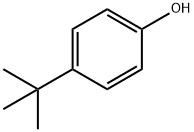A1177612
n-Butylbenzene , Analysis of standard products, ≥99.8%(GC) , 104-51-8
Synonym(s):
1-Phenylbutane;Butylbenzene;Butylbenzene solution
CAS NO.:104-51-8
Empirical Formula: C10H14
Molecular Weight: 134.22
MDL number: MFCD00009463
EINECS: 203-209-7
Update time: 2022-07-08
PRODUCT Properties
| Melting point: | -88 °C |
| Boiling point: | 183 °C(lit.) |
| Density | 0.86 g/mL at 25 °C(lit.) |
| vapor density | >1 (vs air) |
| vapor pressure | 1.03 mm Hg ( 23 °C) |
| refractive index | n |
| Flash point: | 139 °F |
| storage temp. | 2-8°C |
| solubility | 11.8mg/l |
| form | Liquid |
| pka | >14 (Schwarzenbach et al., 1993) |
| color | Clear colorless |
| Odor Threshold | 0.0085ppm |
| explosive limit | 0.8-5.8%(V) |
| Water Solubility | INSOLUBLE |
| Merck | 14,1549 |
| BRN | 1903395 |
| Henry's Law Constant | 12.7 at 45.00 °C, 14.1 at 50.00 °C, 15.7 at 55.00 °C, 17.3 at 60.00 °C, 18.9 at 65.00 °C, 22.2 at
70.00 °C, 26.1 at 80.00 °C (static headspace-GC, Park et al., 2004) |
| Dielectric constant | 2.4(20℃) |
| Stability: | Stable. Flammable. Incompatible with strong oxidizing agents. |
| InChIKey | OCKPCBLVNKHBMX-UHFFFAOYSA-N |
| Surface tension | 29.23mN/m at 20°C |
| CAS DataBase Reference | 104-51-8(CAS DataBase Reference) |
| NIST Chemistry Reference | Benzene, butyl-(104-51-8) |
| EPA Substance Registry System | n-Butylbenzene (104-51-8) |
Description and Uses
n-Butylbenzene is an organic solvent that has been used to induce cell death in vitro and for bioconversion.
Safety
| Symbol(GHS) |  GHS02 |
| Signal word | Warning |
| Hazard statements | H226 |
| Precautionary statements | P210-P370+P378 |
| Hazard Codes | F,T,N |
| Risk Statements | 10-39/23/24/25-23/24/25-11-50/53 |
| Safety Statements | 16-45-36/37-7-61-60 |
| RIDADR | UN 2709 3/PG 3 |
| WGK Germany | 3 |
| RTECS | CY9070000 |
| Autoignition Temperature | 774 °F |
| TSCA | Yes |
| HS Code | 2902 90 00 |
| HazardClass | 3 |
| PackingGroup | III |
| Hazardous Substances Data | 104-51-8(Hazardous Substances Data) |
| Toxicity | rat,LDLo,oral,10mL/kg (10mL/kg),LUNGS, THORAX, OR RESPIRATION: "FIBROSIS, FOCAL (PNEUMOCONIOSIS)"BLOOD: HEMORRHAGELUNGS, THORAX, OR RESPIRATION: ACUTE PULMONARY EDEMA,AMA Archives of Industrial Health. Vol. 19, Pg. 403, 1959. |




